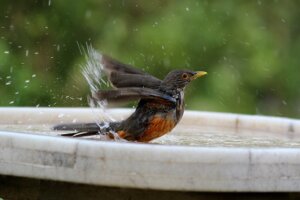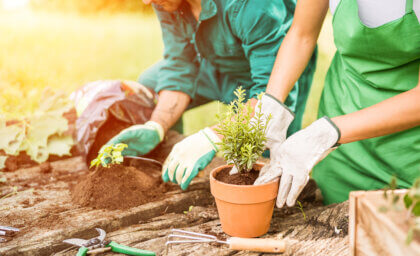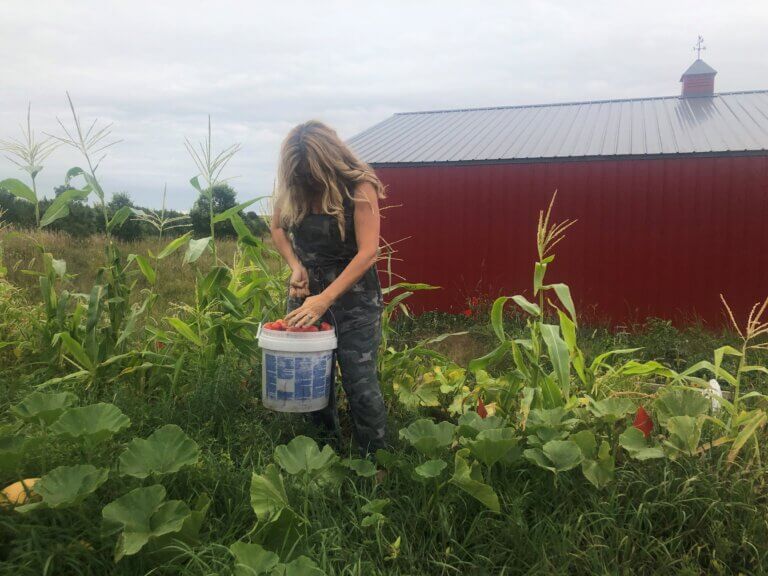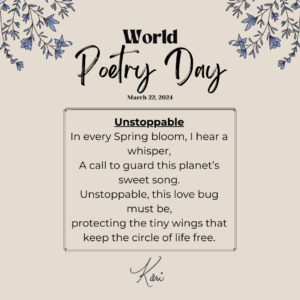Garden pests come in all shapes and sizes depending on where you live, and what time of year it is, and they can make gardening a challenging endeavor, to say the least.
 Before I started EarthKind, I grew 2 acres of organic garden fruits and veggies alongside our 1100-acre farm. It was too much to do without employing the in-kind services nature provides for giving back to a healthy ecosystem. As a certified Master Gardner, I knew maintaining soil health was essential, so I chose natural amendments like herbs, spices, worms, and organic minerals to create a thriving ecosystem for my plants. When I got that right, gardening was no longer a scary endeavor filled with harmful chemicals or uncertainty from pest damage.
Before I started EarthKind, I grew 2 acres of organic garden fruits and veggies alongside our 1100-acre farm. It was too much to do without employing the in-kind services nature provides for giving back to a healthy ecosystem. As a certified Master Gardner, I knew maintaining soil health was essential, so I chose natural amendments like herbs, spices, worms, and organic minerals to create a thriving ecosystem for my plants. When I got that right, gardening was no longer a scary endeavor filled with harmful chemicals or uncertainty from pest damage.
I’ve put together my top tips for you to combat garden pests naturally, without killing or poisoning the pests or produce with harsh chemicals.
Try these 10 proven ways from your friends at EarthKind
- Healthy soil is the most important pest deterrent to start with. Why? Because healthy soil creates healthy plants. Weakened plants lose their natural resistance and attract pests like a magnet. Ask for a soil test of your garden soil at your local extension agent before you even go to your local greenhouse. Make sure it has the right PH, and organic matter to do the job. My favorite organic matter is composted sheep manure (6 plus months old.) Sheep manure doesn’t pass through weed seeds like horse and cattle manure does, it won’t burn the roots by getting too hot after you work it in. Plus, it provides the beneficial microbes, essential nutrients, and the organic matter a garden needs. Follow directions carefully when you use any kind of manure, as there are dozens of options.
 Birds are my second favorite pest guard. They eat hundreds, sometimes thousands, of insects a day, and are a natural and attractive garden resident. Plant a tree nearby or hang a birdhouse to attract them. Add a birdbath to provide water to attract them if a natural water source is not nearby. Keep the bird feeder clean and the water fresh to prevent mosquito larvae from taking up residence. Note: when using birdseed, steer clear of neonicotinoid-treated birdseed. The Journal of Science published a research study late 2019, claiming that migrating birds who ate the equivalent of just one or two neonic treated seeds, suffered immediate weight loss, delaying normal migration and severely harming their chances of survival.
Birds are my second favorite pest guard. They eat hundreds, sometimes thousands, of insects a day, and are a natural and attractive garden resident. Plant a tree nearby or hang a birdhouse to attract them. Add a birdbath to provide water to attract them if a natural water source is not nearby. Keep the bird feeder clean and the water fresh to prevent mosquito larvae from taking up residence. Note: when using birdseed, steer clear of neonicotinoid-treated birdseed. The Journal of Science published a research study late 2019, claiming that migrating birds who ate the equivalent of just one or two neonic treated seeds, suffered immediate weight loss, delaying normal migration and severely harming their chances of survival.- Sprinkling food grade diatomaceous earth along the soil around plants will create an abrasive barrier to prevent crawling insects/cabbage worms from reaching your brassicas. These garden pests only use them as a hatchery, spoiling your cabbages, brussels sprouts, and cauliflower. This method protected hundreds of plants from damage in my garden. Other Master Gardeners say it works for watermelon, squash, and cantaloupe too.
- If it’s too late, and the tiny worms have already shown up, mix up a liter of water, and 3 tsp of cayenne pepper. Place in a spray bottle and treat the leaves of the affected plants and those directly next to them. Also spray along the soil, as the worms will climb down the stems and look for a less painful plant to feed on. Watch closely for a week or so. Spray again after rain or watering if needed.
- For potato beetles, I’ve tried everything under the sun, and have found that a watchful eye is the most reliable, cheapest, and the easiest. To stop the problem before it starts, carefully inspect the underside of the potato plant leaves while weeding, or watering. Once the plant is 5-7” tall with several leaves, you’ll spot little bright orange dots, about the size of a pinhead, with eggs inside. Once you find them, destroy them all, and the beetles will not return the rest of the year. It takes just seconds to do once the first few show up.
- A multi-purpose pest spray can be made with a mixture of 2 Tablespoons Dr. Bronner’s lavender (or peppermint) liquid soap and warm water in a 10” spray bottle. I’ve successfully used this to treat the leaves of melons and tomatoes that had leaf mold and aphid damage.
- Use garden lime and lightly dust green beans with it to repel Japanese beetles. Planting rosemary nearby as a beneficial repellent helps too!

- Grasshoppers can cause havoc in a garden. Birds like bluebirds, blue jays and hawks eat them. So do insects such as praying mantises, dragonflies, and carpenter ants. Yes, ants living in close proximity can be a friend in the garden if there are grasshoppers, stink bugs, or cockroaches for food. If not, they’ll farm aphids for the sugary honeydew poo they produce. Keeping free-range chickens or guinea hens will keep grasshoppers in check too.
- To keep rabbits, deer, squirrels, and groundhogs out of the garden, scatter organic blood meal on the ground between rows of vegetables, or ask your hairdresser for clippings to spread around the garden perimeter. The smell of humans keeps them at bay. A more expensive option is to apply a spray of coyote urine from a hunting supply store. Coyotes are predators to smaller animals. This usually takes care of an exceedingly difficult rabbit or squirrel problem.
- This last tip is a word of caution. There’s been a record number of snake bites in NC this spring due to so many people planting gardens during the Covid-19 pandemic. This is partially because rodent numbers are higher than normal due to restaurants and sporting center closures. Rodents are communal pests that eat garbage. Wherever there are rodents, snakes aren’t far behind. Overstocked pantries, with paper towels for bedding, and dog food close by (a mouse’s favorite meal) require protection. Don’t leave dog food out overnight; cover the container and place pouches of Stay Away® Rodent in storage areas — the botanical ingredient, balsam for oil, has been effectively repelling mice since 2007.
Bonus tip: Don’t forget to protect yourself from pests that can harm your health, like ticks and mosquitoes, with EarthKind’s skin-friendly Stay Away® Mosquitoes.
Do you have any tried and true tips you’d like to share? Please share them in the comment section. Happy gardening!



